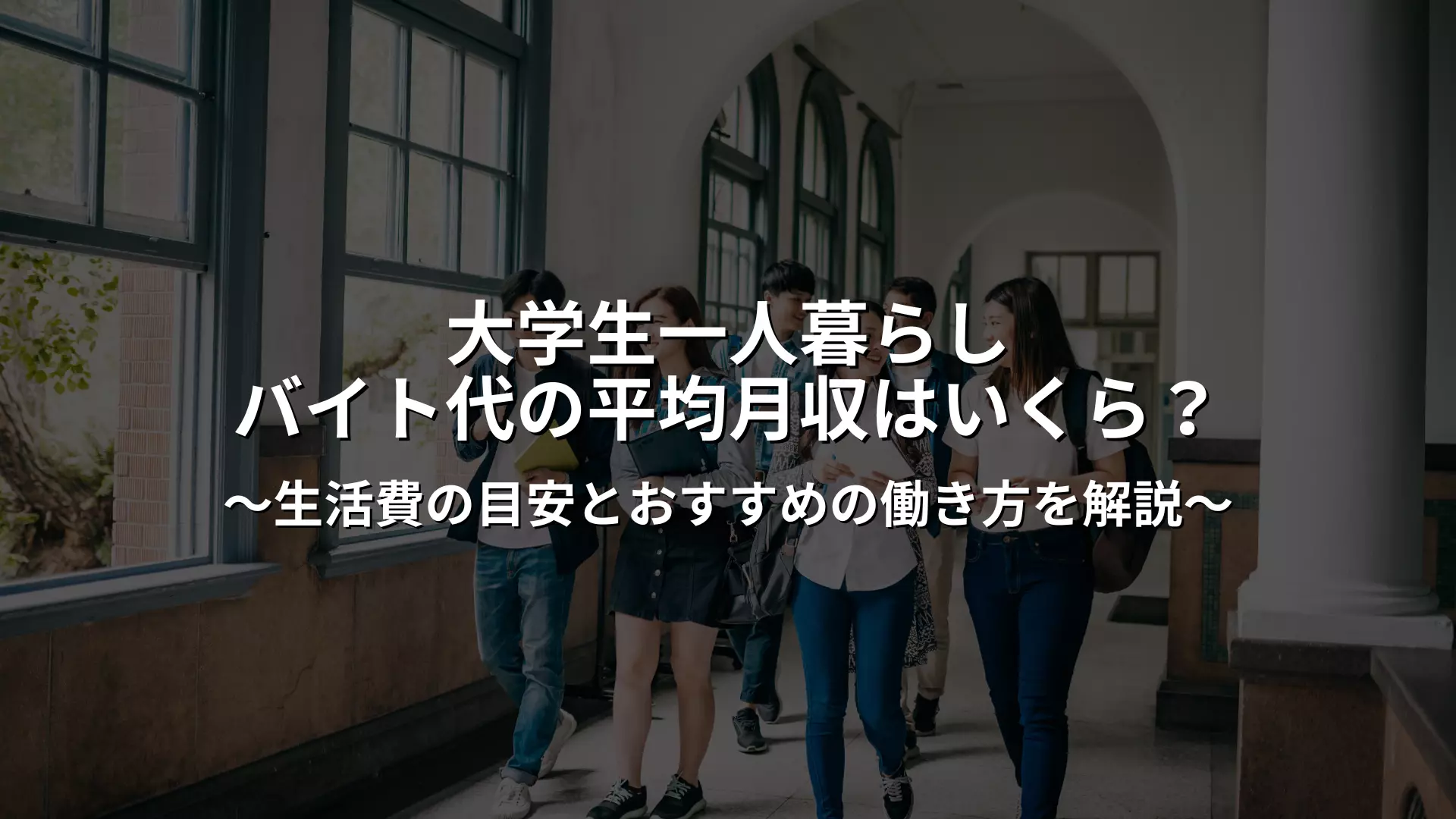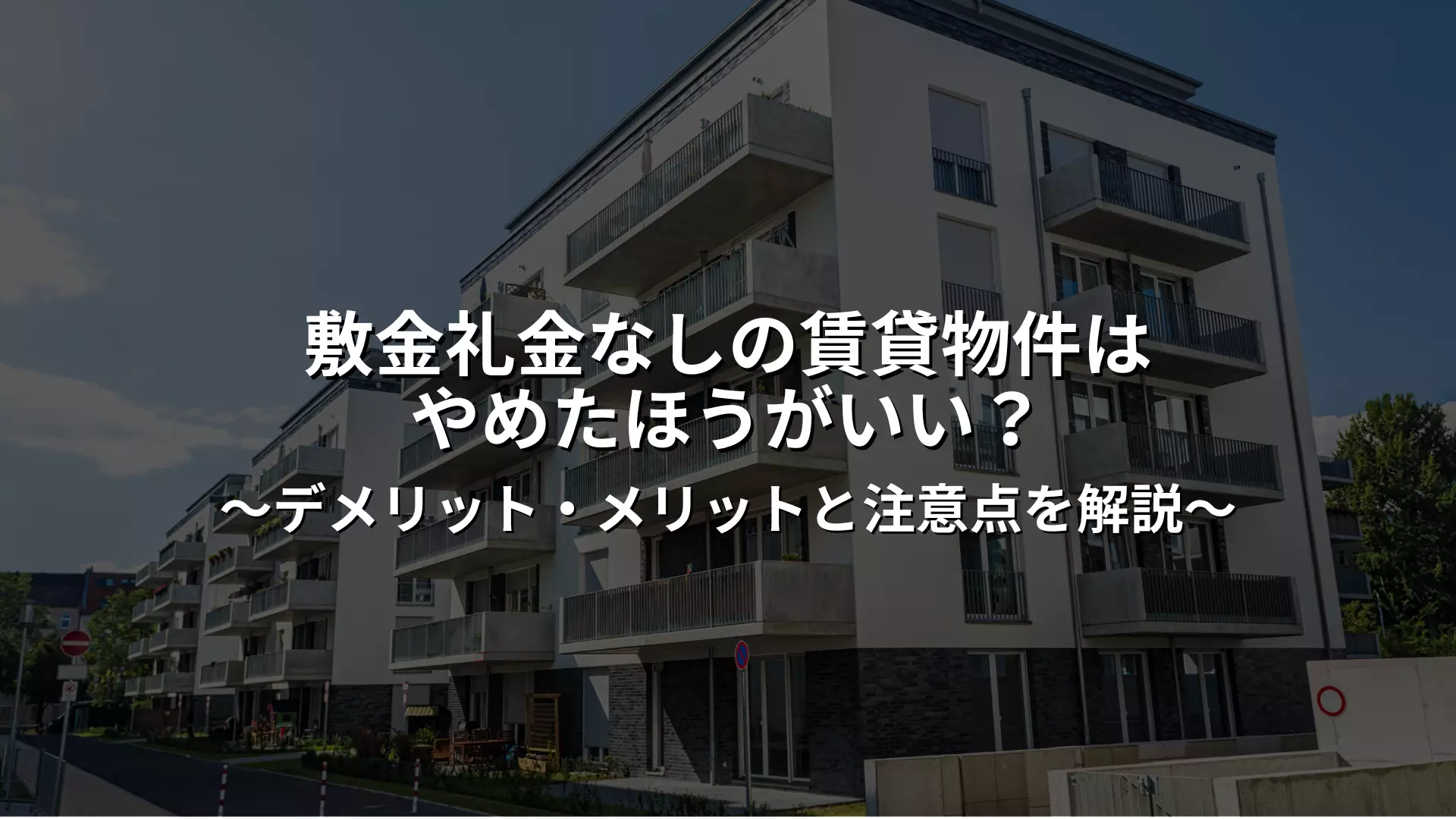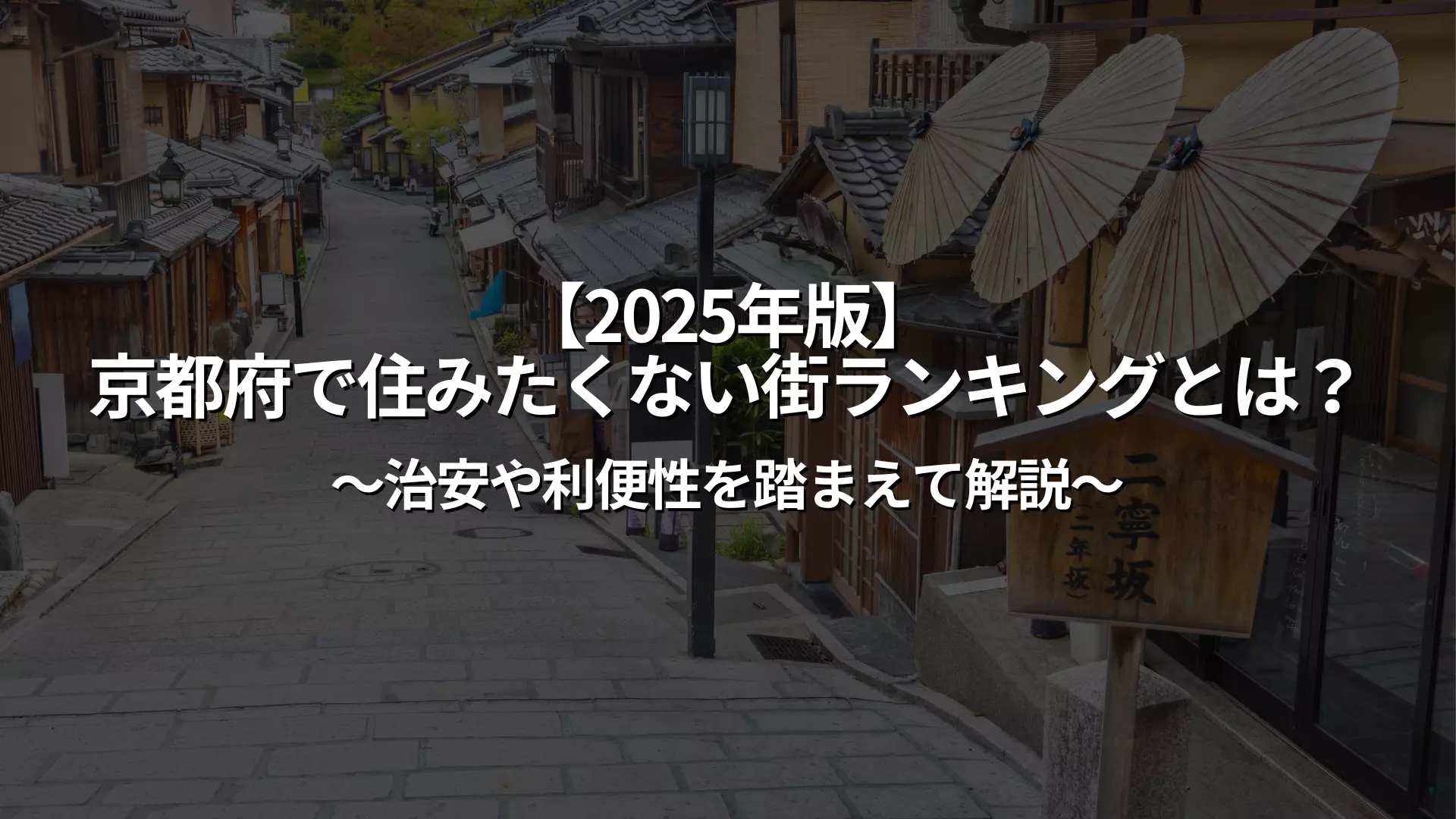Breakdown of living expenses required for a university student living alone
When university students start living alone, monthly living expenses such as rent, utilities, food, and communication fees become a major burden. Rent is particularly high in urban areas, so it is important to find a way to combine money sent home and part-time work income.
Below, we will take a closer look at the average cost of living required for living alone and the differences between living with your parents.
Average rent, utilities, food, and communication costs
The cost of living for a university student living alone varies depending on the area and housing conditions, but the national average is around 120,000 to 130,000 yen per month.
The breakdown is as follows:
- Rent accounts for the largest proportion, with the average price in the Tokyo metropolitan area being around 50,000 to 70,000 yen.
- Utilities such as electricity, gas, and water are around 10,000 yen
- Even if you mostly cook at home, food expenses tend to be between 20,000 and 30,000 yen. *If you eat out a lot, the cost tends to be even higher.
- Communication costs such as smartphone and internet fees will cost around 5,000 to 10,000 yen
- In addition, when expenses such as teaching materials, entertainment expenses, and daily necessities are included, the total amount generally exceeds 100,000 yen per month.
Therefore, it is essential to combine part-time income with money sent home or scholarships.
Comparison with living at home
When comparing living alone to living with your parents, the biggest difference is whether or not you have to pay rent and utility bills.
Living with your parents means you don't have to pay for housing, so your living expenses will often average around 40,000 to 60,000 yen, which has the advantage of allowing you to use your part-time earnings almost freely.
On the other hand, it is not uncommon for monthly living expenses to be more than double if you live alone. Rent is a particularly heavy burden for university students in urban areas, and in some cases most of their part-time earnings are consumed in living expenses. However, living alone also has the great benefit of fostering independence and acquiring life management skills and a sense of household finances.
If you don't receive money from your parents, you'll need to increase your part-time work hours, but balancing that with your studies can be a challenge. While the financial burden increases, many students find living alone appealing in terms of the experience and freedom it offers.
Average monthly income from part-time work for university students living alone
For university students living alone, part-time work is a major source of income to support their lives. Looking at national data, part-time work wages for university students vary by region and by working style. There also tends to be a difference in the amount of money earned and working hours between living alone and living with parents, so adjusting shifts and balancing work with studies are key points.
Nationwide average wage data for part-time university students
According to the latest survey, the average monthly income for part-time students is around 50,000 to 70,000 yen. This is based on working two to three times a week for four to five hours a day, and monthly income tends to be higher in the capital and other major cities due to higher hourly wages.
For example, while the average hourly wage in Tokyo and Osaka is around 1,200 to 1,400 yen, in regional cities it is often in the 900 yen range, meaning that there is a large difference in income even for the same number of hours worked. Also, since working hours can be increased during long holidays such as summer and spring break, it is not uncommon for students to temporarily earn more than 100,000 yen per month.
Based on this nationwide data, it is important to create a reasonable income plan that suits your lifestyle.
Difference in monthly income between living alone and living with parents
There is a clear difference in the average monthly income from part-time work between living alone and living with parents.
According to survey data, the average monthly income of university students living at home is around 50,000 to 60,000 yen, while that of students living alone is higher at 60,000 to 70,000 yen or more. This is because they have to cover their own living expenses, which inevitably leads to an increase in shifts.
In urban areas, where rent and food costs are particularly high, students who receive less money from their parents are more likely to rely on part-time work, with some even earning over 100,000 yen a month. On the other hand, students who live at home have their parents cover the majority of their living expenses, so the big difference is that they can use their part-time earnings for hobbies, socializing, savings, etc.
In this way, it can be said that even for the same university student, the way they earn money and how they use their income can vary greatly depending on their living environment.
Average shift days and working hours
Part-time work for university students is based on the premise that they can balance it with their studies, so the most common type of work is around three days a week, with shifts of around four hours per day. Many students work from the evenings to nights on weekdays when they have classes, and some students work full-time shifts on weekends.
Working this way will earn you an average monthly salary of around 50,000 to 70,000 yen, but if you want to earn more, it is common to take on a 4-5 day a week shift, or work late nights or weekends.
It is also possible to temporarily earn over 100,000 yen by increasing shifts during busy periods or long holidays. Conversely, students who prioritize their studies may limit their income to around 30,000 to 40,000 yen, which can be used for basic living expenses and hobbies. The key to continuing a part-time job without straining yourself is to adjust your shifts to suit your lifestyle.
Search for a room
Only furnished properties with appliances are listed!
Balancing allowance, scholarships, and part-time work
For university students living alone, it is important to combine three sources of income: money from home, scholarships, and part-time work to cover living expenses. If you receive a lot of money from home, you can cut down on part-time work and focus on your studies, but if you don't receive much, you will need to rely on scholarships and part-time work.
Here, we will explain how to manage your living expenses reasonably, taking into account the average amounts and usage of each.
Average amount of money sent by parents
Nationwide, the average amount of money sent by parents is said to be around 50,000 to 70,000 yen per month. In areas with high rent, such as the Tokyo metropolitan area, the amount of money sent tends to be higher, but it is still rare for it to cover the entire rent, and the reality is that many students secure their living expenses by combining their parents' money with part-time job earnings.
Furthermore, the amount of money sent home varies greatly depending on the family's financial situation, and there are a certain number of students who do not receive any money from their parents. In such cases, they must rely on part-time work or scholarships to cover the majority of their living expenses, which can make it difficult to balance their studies with their studies.
In other words, while receiving money from your parents can be a great help, it's important not to rely solely on it, but to consider balancing it with your own income.
Scholarship utilization status
Many students use scholarships when their allowances or part-time job earnings are not enough.
According to a survey by the Japan Student Services Organization (JASSO), roughly one in two university students receives a scholarship, with the average payment amounting to around 30,000 to 50,000 yen per month. There are two types of scholarships: interest-free and interest-bearing, and it is important to consider the repayment burden before using them. Scholarships are useful for covering tuition fees and rent, but borrowing too much without making a repayment plan after graduation can become a heavy burden once you enter the workforce.
Therefore, it is necessary to find a balance between the amount of money sent home and part-time work wages, and to keep it to a bare minimum. If used wisely, this system can be a great support for your studies and stability in life.
Managing living expenses by combining part-time work with part-time work
In reality, the majority of students make ends meet by combining allowances from their parents, scholarships, and part-time work.
for example,
- Monthly allowance of 50,000 yen
- A scholarship of 30,000 yen
- Part-time job pay is 50,000 yen
- Total: 130,000 yen
This will cover the average cost of living. If the amount of money sent home is small, you will need to increase your part-time shifts to make up for it, but this can also put a strain on your academic balance. Therefore, it is essential to take measures such as reducing fixed expenses such as rent, saving on food costs by cooking at home, and reviewing your smartphone plan.
The key is to increase your income while simultaneously reducing your expenses. By thinking about how to allocate your limited income, you can avoid being overwhelmed by part-time work and enjoy a fulfilling university life.
Estimated part-time wages and earning patterns
When a university student lives alone, how much they should earn from a part-time job depends on their lifestyle and academic priorities. The amount needed varies depending on whether they just need to cover the bare minimum of living expenses or whether they want to use the money for hobbies and savings, so it's important to determine how to earn money that suits you.
Here we will explain three typical patterns.
A guideline for those who want to prioritize their studies and earn a minimum amount of money
For students who prioritize their studies, part-time work is enough to cover part of their living expenses.
On average, if you aim for around 30,000 to 50,000 yen a month, you can cover tuition and rent with allowance or scholarships, and food and social expenses with part-time work. In this case, you can achieve this by working about four hours a day, twice a week, which makes it easy to balance with classes and studying for exams.
It is also important to choose a workplace where it is easy to adjust your shifts during busy periods or before exams, such as cram school instructors, private tutors, or convenience stores or supermarkets that allow part-time work. If you try too hard to increase your income, you will neglect your studies, so the key to living a secure university life is to be aware of "earning only the minimum amount necessary."
A guide for people who want to save money and enjoy hobbies
Students who want to travel, pursue hobbies, and save for the future should aim for a part-time job income of around 70,000 to 100,000 yen per month. This will provide you with money to spend freely on socializing and hobbies, in addition to your living expenses.
In this case, it is common to work 4-6 hours a day in 3-4 shifts per week, and you can earn a stable income by choosing a job where you can work long hours, such as as a restaurant or event staff member. In particular, in urban areas, there are many job openings that pay more than 1,100 yen per hour, so you can earn money efficiently by arranging your shifts in a creative way.
One thing to be careful about is that spending too much time on a part-time job can affect your studies and your health. Therefore, it is important to "make time to enjoy your hobbies and save money, while still maintaining a line that does not interfere with your studies."
How to earn money during long holidays or short intensive periods
Another effective method is to take advantage of long holidays such as summer and spring break to work intensively.
Since there are no classes during this period, it is possible to work full-time, 5-6 days a week, and many students earn over 150,000 to 200,000 yen a month. Resort jobs, event staff, and moving jobs are particularly popular as they offer high incomes in a short period of time. This style of earning a lot in a short, concentrated period of time allows for an efficient lifestyle plan, where you can focus on your studies by working only the minimum amount of part-time work during the regular semester, and secure a lump sum during the holidays.
However, because much of the work is physically demanding, you will need to be careful about managing your health and adjusting your schedule. By balancing your time at university with your studies during the semester and time off to earn money, you can lead a stable university life.
Search for a room
Only furnished properties with appliances are listed!
Popular and recommended part-time jobs for university students
Part-time jobs for university students are important not only for covering living expenses but also for gaining work experience. Popular jobs, especially for students living alone, include customer service jobs such as restaurants and cafes, convenience stores where you can easily adjust your shifts, private tutoring and cram school teaching, which allow you to earn money efficiently, event staff jobs where you can earn money in a short period of time, and one-off jobs with high hourly wages.
Here we will introduce some typical part-time jobs recommended for university students.

Restaurants and cafes
Restaurants and cafes are some of the most popular part-time jobs for university students. Customer service and cooking assistance allow you to hone your communication skills, and flexible shifts make it easy to balance work with classes. Restaurants that offer free meals allow you to save on food costs, which is a major benefit for students living alone.
Another feature is that there is a wide range of options, from chain stores to privately owned businesses, so you can choose the work style that suits you. Busy times can be tough, but it is a part-time job that gives you a sense of accomplishment and fulfillment.
Convenience stores and supermarkets
Part-time work at convenience stores and supermarkets is characterized by the fact that it is easy to arrange stable shifts and is easy to start even if you have no experience. The work is simple, such as working the cash register, stocking shelves, and cleaning, and the ability to work short hours makes it ideal for balancing work with school.
Convenience stores, in particular, are often open 24 hours a day, so it's easy to work in a way that suits your lifestyle, such as working late at night after class or early morning shifts. On the other hand, there are busy times when you have to deal with customers and do a wide range of tasks, but it also serves as practice for acquiring basic working skills.
Private tutor/cram school instructor
Private tutoring and cram school teaching are popular high-paying part-time jobs for university students. The hourly wage is high, around 1,500 to 2,500 yen, and the major benefit is that you can earn money efficiently in a short amount of time. The content of instruction is mainly study support for elementary, junior high, and high school students, so you can work using your strengths in subjects.
It also provides practical experience for those aiming to work in the education field in the future. This job requires preparation and a sense of responsibility, but it is also very rewarding and easy to balance with student life.
Event staff
Event staff work to support venue operations at concerts, sporting events, exhibitions, etc., and are popular among university students looking for short-term, intensive work. The work involves a wide range of tasks, including reception, guidance, setting up and tearing down, and working cooperatively with colleagues helps develop teamwork skills.
Many of the shifts are one-off and short-term, allowing you to earn money efficiently on days when there are no classes or long holidays. While there are some physically demanding situations, the joy of working in an unusual environment and the valuable experience you can gain are also appealing.
High hourly wage, short-term, one-off work
High hourly wages, short-term, or one-off jobs are recommended for college students who want to earn money efficiently in a limited amount of time.
Representative examples include:
- Exam proctor
- Moving staff
- Resort part-time job
- Data entry, etc.
Especially during long holidays, it is possible to earn over 100,000 yen in a short, concentrated period. One-off part-time work that utilizes work from home or spare time is also becoming more common, making it easy to balance with studies, which is another reason for its popularity. Since there is little restriction on shifts and there is a high degree of freedom, you can work flexibly according to your lifestyle.
The ideas of college students who want to earn more than average
The average part-time income for university students is 50,000 to 70,000 yen per month, but many people want to earn more than that to cover living expenses, hobbies, and savings. To increase income efficiently, you need to be creative, such as working multiple jobs or choosing shifts with higher hourly wages.
Here are some specific ways to earn more than average.
Increase your income by working multiple part-time jobs
Since there is a limit to the number of shifts and income you can earn with just one part-time job, an increasing number of university students are working multiple jobs. For example, by working in the evenings at a restaurant on weekdays and taking on one-off jobs such as event staff on weekends, it is possible to earn more than 100,000 yen a month.
When working multiple jobs, it's important to choose a workplace where you can easily adjust your shifts. It's also important to work within your limits, taking into consideration the physical strain and the impact on your studies. By combining stable income with short-term income, you can efficiently cover your living expenses.
Utilize late-night and weekend shifts
Late-night and weekend shifts often have higher hourly wages, making them a great option for university students looking to increase their income efficiently. Restaurants, convenience stores, security guards, and other businesses offer a premium for late-night shifts, earning you an hourly wage that's around 25% higher than normal, making it easy to earn money in a short amount of time.
In addition, there are many event and sales jobs available on weekends, so if you work full-time, you can earn a large income. If you work nights and weekends without interfering with your studies, you can earn a higher-than-average part-time wage.
Earn extra income through work from home and flea market apps
For university students who want to earn money without the hassle of commuting, working from home or using flea market apps is also recommended. Crowdsourcing, such as data entry and writing, can be done in your spare time, making it easy to balance with your studies.
Additionally, an increasing number of students are using flea market apps to sell unwanted items or list handmade items to earn a stable side income. Even small amounts can add up to a few thousand to tens of thousands of yen per month, making it an effective way to support one's household finances in addition to a part-time job.
Search for a room
Only furnished properties with appliances are listed!
Saving tips for college students living alone
For university students living alone, a large portion of their income goes to living expenses, so it's essential to find ways to cut down on waste. The key to saving money is especially in terms of how to cut down on food, utility bills, communication costs, and rent, which accounts for a large portion of the total. Even small changes can make a big difference over the course of a year, so it's important to rethink your daily habits.
Here are some specific ways to save money.
Tips for reducing food costs
Food costs make up a large portion of living expenses for those living alone, so you can make big savings if you are creative. If you cook your own meals, you can save around 10,000 to 20,000 yen a month compared to a lifestyle based on eating out. Buying in bulk and preparing food in advance will help you use ingredients without waste and increase your savings.
It is also effective to take advantage of the school cafeteria or a part-time job that provides meals. Convenience store bento boxes and eating out are convenient, but they can become expensive if you add them up, so by being conscious of the style of "cooking at home + eating out only when necessary," you can comfortably keep food expenses down.
How to save on utility and communication costs
Since utility bills and communication costs are fixed monthly expenses, they are items where savings tend to accumulate.
You can save money by switching to LED lighting, adjusting the air conditioner temperature frequently, and using gas for cooking and bathing all at once. You can cut communication costs by several thousand yen per month by switching to a low-cost SIM card or student discount plan. You can also reduce costs by choosing an environment where you can share Wi-Fi.
Even small changes can lead to big savings over the course of a year, so "reviewing fixed costs" can be said to be the top priority for saving money.
How to choose a property with low rent
Rent is the biggest living expense.
To keep rent down,
- Live within easy reach of the university by bicycle or train
- Choose an older property
- Considering a shared house is an effective way to live
- Choosing a property with furniture and appliances will reduce your initial costs and lead to long-term savings.
Here are some ways to choose. Rent tends to go down even if you're just a 5-10 minute walk away from the station, so it's important to find the right balance between convenience and cost. Keep in mind that lowering rent, which is a fixed cost, means reducing the burden on your entire lifestyle.
Key points for balancing studies and part-time work
Balancing studies and part-time work is a major challenge in university life. Students living alone in particular need to earn a living, and it is not uncommon for them to overwork themselves, damaging their studies and their health. The key to balancing work and study is threefold: choosing a workplace that is easy to work in, being creative with shifts, and understanding the annual income limits for taxes and social insurance.
Here we will explain some specific points to help university students work with peace of mind.
Choose a part-time job where shifts can be easily adjusted
In order to balance your studies and part-time work, it is most important to choose a workplace that offers flexible shift adjustments.
Since a university student's schedule is prone to change due to classes, seminars, exams, club activities, etc., it is safer to look for part-time jobs that have a self-reporting system rather than a fixed shift system. In particular, it is relatively easy to adjust shifts at restaurants, convenience stores, event staff, and cram school instructors.
It's also a good idea to check whether the work environment can accommodate sudden schedule changes. Flexible shifts allow you to work less when you want to prioritize your studies, and more during your holidays, allowing you to work in a way that suits your lifestyle. This ultimately makes it easier to stay in the job for the long term, leading to a stable income.
How to work during exam periods and long holidays
For university students, exam periods and report submission periods require concentrated study, and working regular shifts can interfere with their studies. For this reason, it is important to reduce shifts before exams and instead work more during long holidays.
For example, you can secure a minimum income with two or three shifts per week during the regular week, and then earn a lot more money during summer or spring break by working as an event staff member or taking on a short-term part-time job.Many students earn 100,000 to 150,000 yen or more per month working full-time or at resorts during long holidays, which is an efficient way to supplement their living expenses.
By switching between working during the semester and during the holidays, you can more easily balance your studies with an income.
Points to note about the annual income barrier (1.03 million yen and 1.3 million yen)
One thing that college students should not forget when continuing to work part-time is the ``annual income barrier.''
If your part-time income exceeds 1.03 million yen, you will no longer be eligible for the dependent deduction, which could increase your parents' tax burden. Furthermore, if your income exceeds 1.3 million yen, you may be required to enroll in social insurance and be required to pay health insurance and pension premiums. Therefore, students who want to earn more than average should check their expected annual income before taking on more shifts.
In particular, if you live alone and earn more than 100,000 yen per month for several consecutive months, your annual income may quickly exceed this limit. By understanding how income, taxes, and social insurance work, and knowing how much it will affect your household finances, you can work with peace of mind.
summary
For university students living alone, part-time work is essential to cover living expenses. The average monthly salary is around 50,000 to 70,000 yen, but the amount needed varies greatly depending on rent and whether or not you receive money from your parents. To balance work with your studies, it's important to choose a workplace where you can easily adjust your shifts and devise ways to switch your work schedule between exam periods and long holidays.
Also, be aware of the annual income thresholds of 1.03 million yen and 1.3 million yen, and make sure to make an income within your means. Furthermore, by incorporating money-saving techniques to reduce food and fixed costs, you can lead a stable university life.





























